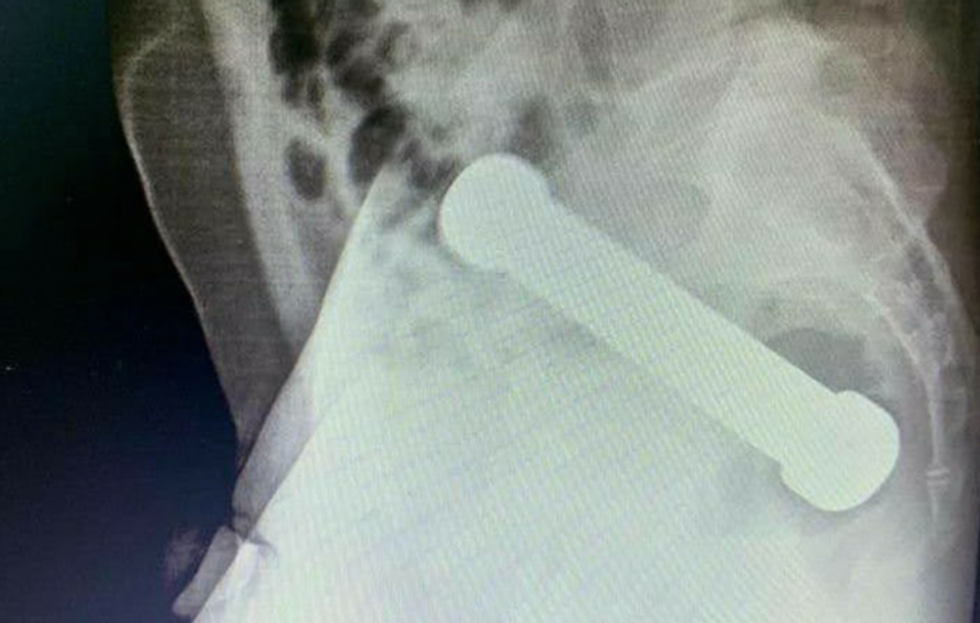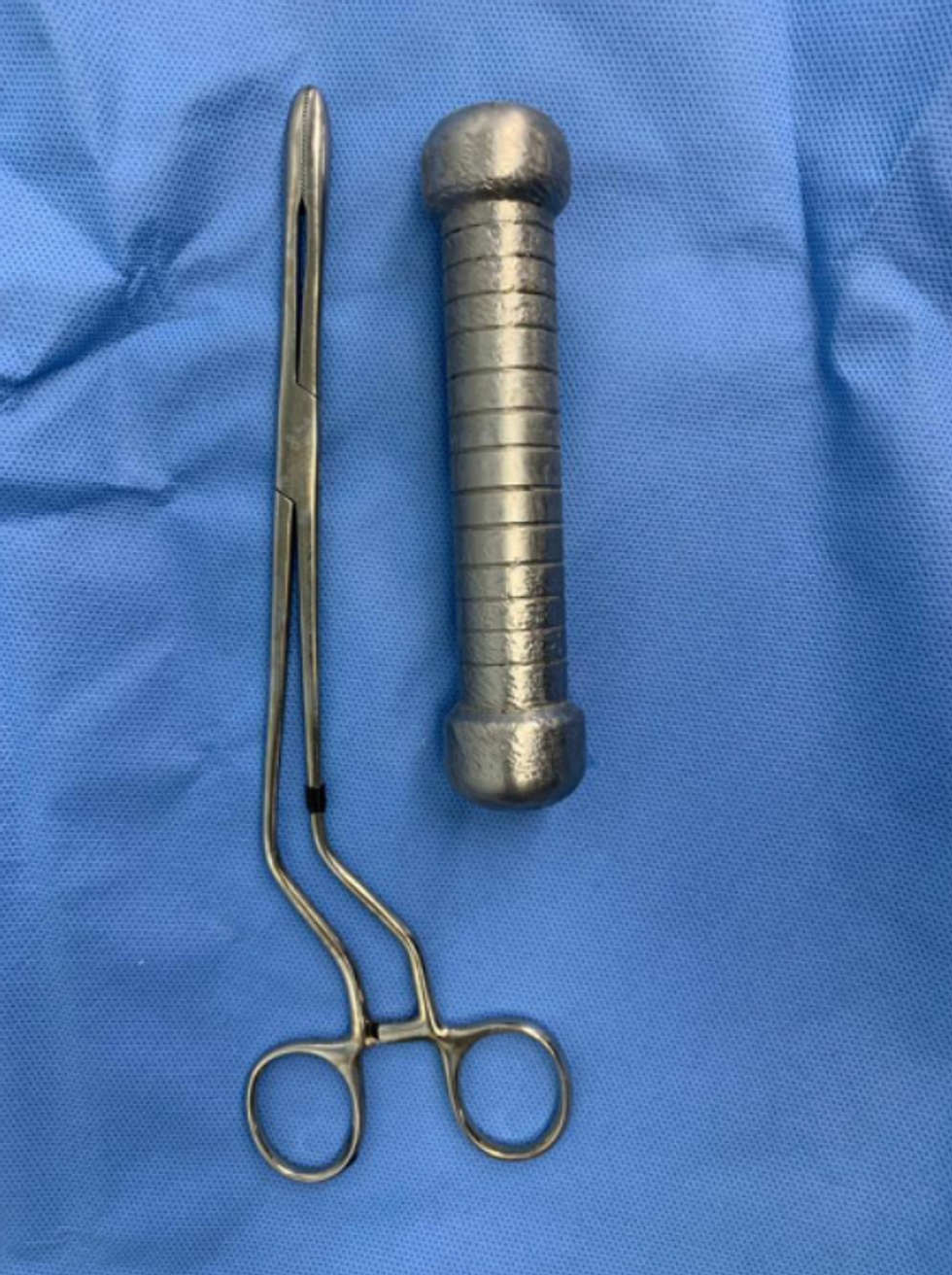A man got a 2kg dumbbell stuck in his rectum - and a surgeon had to use "manually extract" it.
In a report from the International Journal of Surgery Case Reports, an unnamed 54-year-old Brazilian man visited a hospital in Manaus with complaints that he could not defecate, felt nauseous, and experienced abdominal pain.
He also happened to wait two days before seeking medical attention.
Doctors requested an X-ray of his abdomen after an initial examination that struggled to find the cause - and the man was also reportedly hesitant to unveil what he surely knew was causing him discomfort.
They also said that the man was "uncooperative" throughout the physical examination.

Sign upto our new free Indy100 weekly newsletter
Afterwards, the object causing suffering was revealed.
The X-rays spotted a metallic 2kg dumbbell which was about 20cm long and lodged in the area where the colon meets the rectum.
Surgeons sedated the man and attempted to remove the weight with surgical tweezers, which was unsuccessful.
With the lack of possible options, they then decided to do a "manual extraction."

Fortunately, it ended on a positive note, with the man being discharged from the hospital after three days.
Doctors stated that although this ... ahem ... accident is something that affects both men and women, it is more prevalent in men at a ratio of 28:1 to females, specifically white men between 20-40 years old. They also noted that "practices of sexual gratification" are motivations.
"A huge variety of rectal objects have been described, with a greater predominance of those of a sexual nature, followed by glass objects, which should be handled with greater care due to their fragility and risk of injury if broken," the report said.
In other unique cases, doctors believed that a woman had a urinary tract infection (UTI) - but it turned out to be a piece of glass stuck in her bladder for four years.
And one Iranian man went to the emergency after inserting a AA battery into his penis, which was removed.
Unfortunately, issues started to arise months later after he experienced a "recurrence of obstructive and irritating urinary symptoms including dysuria (burning sensation when peeing), decreased urinary force, decreased urinary caliber but no hematuria."
Six months later, after another surgery, the man's penis fully recovered and functioned properly.
Have your say in our news democracy. Click the upvote icon at the top of the page to help raise this article through the indy100 rankings.














